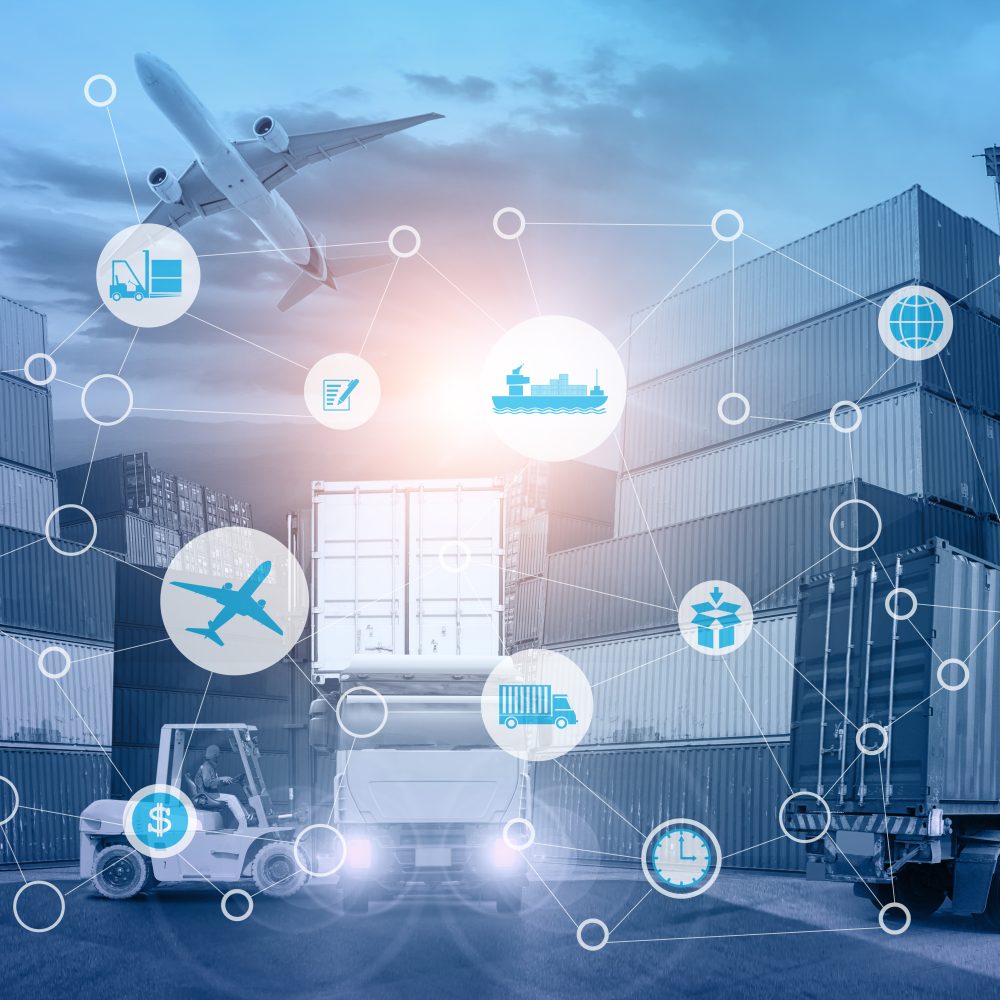

Economic Tranquility and Trade Agreements: How Global Economic Conditions May Affect the Indo-Pacific Economic Framework
Ji Yeon Park
(Assistant Professor, Graduate School of Law, Hitotsubashi University)
December 28, 2022
The Indo-Pacific Economic Framework (IPEF) is an economic initiative first proposed by United States President Joe Biden during the annual East Asia Summit in October 2021, with the goal of achieving an open, connected, prosperous, resilient, and secure development in the Indo-Pacific region.1 The potential benefits of this framework are enormous, because the initial 14 member countries, including Australia, Brunei, Fiji, India, Indonesia, Japan, South Korea, Malaysia, New Zealand, the Philippines, Singapore, Thailand, the US, and Vietnam, represent 40% of the world’s GDP. At their first ministerial-level meeting for the negotiation, held on September 8 and 9, 2022 in Los Angeles, ministers confirmed four core pillars of negotiation that they will explore going forward. All member countries agreed to negotiations on all four pillars (trade, supply chains, clean energy, and fair economy) in upcoming meetings, with the exception that India declined to participate in the trade pillar.
The IPEF will engage developing and developed member countries in addressing collective action toward the region’s challenges in the 21st century, such as clean energy and impacts of the digital economy. However, many people are concerned about a possible dearth of effective economic outcomes for the developing countries from the negotiation, because the IPEF omits the traditional trappings of trade agreements, such as tariff reductions and other trade liberalization measures. The potential shortfall in tangible outcomes and the lack of clarity relative to enforcement mechanisms in this framework contribute to concerns over the IPEF.
The United States’ intention to lead these negotiations intensifies these concerns. The country’s political motivation is to empower the IPEF to dilute China’s political and economic influence in this area, given that the Regional Comprehensive Economic Partnership (RCEP) took effect in January 2022. A second political-economic reason behind the US lead, which is the main topic of this paper, is that the Biden administration is using this opportunity for regional trade and economic negotiation to divert domestic public criticism of US economic hardship since COVID-19, hoping that the regional agreements will improve its chances of retaining office despite a bleak economy.
Since the outbreak of COVID-19 and the war between Russia and Ukraine, the US and world economies have been seriously dampened and are experiencing historic difficulties. In addition, COVID-19 damaged both the ideal and reality of trade liberalization, by intentionally and unintentionally severely diminishing the free movement of people, goods, and services. In this paper, I evaluate the launch and expected success of the IPEF based on the international political economic theories and empirics on this topic, and the effect of global economic hardship on countries’ trade and economic cooperation.
Theoretical and empirical analysis on the relationship between economic difficulties and a state’s trade cooperation
A substantial amount of literature on international political economy is devoted to debating how states behave, in terms of their trade policy, during times of economic hardship. One primary assertion is that states become more liberalized when an economy is poor, and thus more cooperative with other countries by establishing more trade agreements. However, the opposite argument also exists that states become more protectionist during an economically difficult period by conducting more unilateral protectionist policies.
Protectionism Is Not Countercyclical
Studies including Maggi and Rodriquez-Clare (1998 and 2007), Staiger and Tabellini (1999), and Mitra (2002) show that economic performance negatively influences a country’s trade liberalization policy. Rose (2012) asserts that, since the Second World War, protectionism is no longer countercyclical. Using various measures of protectionism such as aggregated tariff rates, Trade Freedom scores, and commercial disputes initiated under the GATT/WTO dispute settlement system, he empirically shows that there is no strong correlation between protectionism and economic hardship. Moreover, Mansfield and Milner (2017) provide a theoretical explanation as to why some democratic states become more liberalized during economically difficult times such as recessions. They argue that politicians have good reasons to establish more trade agreements during hard economic times, as they can derive both economic and political benefits from negotiating and implementing international trade agreements. More specifically, by showing the negotiation process to the public, they can avoid criticism from their domestic population about a poor economy, thereby improving their chances for retaining office despite challenging economic times.
Empirically too, there are examples where states become more liberalized during economic hard times. For example, Japan decided to be part of the Trans-Pacific Partnership (TPP) in order to overcome economic recession by broadening its market access and benefiting from the lower trade barriers provided by the deal. There were, of course, various strategic reasons for each country to be a member of the TPP. However, it seemed quite clear that Japan’s attempt to recover its economy was the main dynamic force behind its decision to start and complete the negotiation. During his visit to the US, when asked how important the TPP is to keeping in check China’s influence, then Prime Minister Shinzo Abe answered at a press conference that the TPP was not created out of consciousness about China.2 Abe stated that “we will prepare well so that companies in our country can take full advantage of the TPP agreement and so the TPP can truly lead to economic recovery for our country.”3 He also noted that the TPP agreement is only the start of this recovery process; there are also the RCEP, the Free Trade Area of the Asia-Pacific (FTAAP), and the conclusion of Japan-EU Economic Partnership Agreement (EPA) negotiations beyond the TPP, all engaged in to re-boost Japan’s economy.4 Based on this example, it is empirically evident that states may take more trade liberalization measures during economically tough times in order to overcome such difficulties.
Protectionism Is Countercyclical
However, many studies cast doubt on this argument and assert that economic hardship negatively influences countries’ trade liberalization, because states tend to raise trade barriers and violate trade agreements during economically difficult times. According to Bagwell and Staiger (2003), two possible strands of reasoning support this argument. The first logical possibility is associated with the domestic political economy, and posits that during recessions, the political pressures from import-competing sectors dominate domestic politics, and a state becomes more protectionist following these pressures. The second is more closely linked to the international political economy: namely, that beggar-thy-neighbor tendencies among countries increase, leading governments to expand protectionism during recessions. Other studies in this stream, such as McKeown (1984), Gallarotti (1985), Coneybeare (1987), Marvel and Ray (1987), Grilli (1988), Hansen (1990), Bohara and Kaempfer (1991), and Mansfield et al. (2016) are also consistent with this argument and empirically show that the average level of protectionism tends to rise in recessions and fall in booms.
The empirical evidence to support this argument is even more obvious from an historical perspective. The Tariff Act of 1930, known as the Smoot-Hawley Tariff,5 passed in the US after the onset of the Great Depression of 1929, is used as a longstanding example. A more recent instance is that, during the 2008 economic crisis, instead of raising tariffs, the US purposely delayed negotiation and ratification of multiple FTAs, resulting in a deterioration of trade liberalization. At that time, House Speaker Nancy Pelosi said, “We certainly should do more for our own economy before passing another trade agreement.”6 She further said that the delay in ratifying the US-Colombia FTA was part of an effort to push the administration to do more to help ordinary Americans in economic distress, and that Congress would ratify this trade deal once those needs were addressed by the administration.7 This is an example of how a state becomes more protectionist during economic hard times, and attempts to focus on its economy by delaying multilateral trade cooperation with foreign countries.
Global economic hardship and the success of IPEF
Existing studies fail to distinguish the effect of economic performance on, first, the demand for trade liberalization and on, second, the actual enactment of this demand. Yet these two stages of trade liberalization have significant differences. Greater demand for trade liberalization does not automatically lead to actual liberalization. In other words, there are two major steps for trade liberalization: the first is that countries negotiate with one another and sign an agreement, and the second is that countries bring this agreement home for ratification.
I contend that the global economic performance may boost the demand for trade cooperation but not affect its implementation. Countries are more likely to negotiate trade agreements during economic hard times, but successful implementation of such agreements is not influenced by global economic performance. Economic hardship can negatively influence the establishment of the trade agreement because public opinion becomes very protectionist during the economically difficult periods. Applying this to the success of the IPEF, the launch of IPEF negotiation after three years of economic challenges caused by COVID-19 evidentially shows that there is a demand for more trade cooperation with other countries to broaden supply chains. However, the success of such demand – in other words, whether the negotiation is later signed and implemented as an enforceable and durable agreement among all member countries – depends on the two-level games being played on the international and domestic stages. Thus, I argue that although based on the theories and empirical evidence, both directions – greater protectionism and liberalization – are possible, the member states’ domestic political support is essential in order to achieve the success of the IPEF during this period of economic hardship.
The COVID-19 pandemic, Russia-Ukraine war, and US-China decoupling have impaired the world economy, endangering a stable and liberalized global supply chain. These international economic, political, and social challenges that the world confronts have influenced each state’s action in its effort to survive in the global trade ecosystem through establishing an agreement like the IPEF. However, some of the 14 member countries of the IPEF already have signaled their intention to submit the Framework for formal domestic ratification, which can create additional conflict and divergences during these economic hard times.
1. White House, “Readout of President Biden’s Participation in the East Asia Summit,” October 27, 2021. https://www.whitehouse.gov/briefing-room/statements-releases/2021/10/27/readout-of-president-bidens-participation-in-the-east-asia-summit/
2. The White House Office of the Press Secretary. “Remarks by President Obama and Prime Minister Abe of Japan in Joint Press Conference.” The White House President Barack Obama website. April 28, 2015. https://obamawhitehouse.archives.gov/the-press-office/2015/04/28/remarks-president-obama-and-prime-minister-abe-japan-joint-press-confere
3. Fifield, Anna and Simon Denyer. “Japanese leader hails trade deal, says it will boost economy and entire region.” The Washington Post. October 6, 2015.
4.“Press Conference by Prime Minister Shinzo Abe.” Prime Minister of Japan and His Cabinet website. October 6, 2015. http://japan.kantei.go.jp/97_abe/statement/201510/1213579_9930.html
5. This act raised US tariffs on over 20,000 imported goods during the early 1930s.
6. Pelosi, Nancy. “Transcript of Pelosi Press Conference.” Nancy Pelosi website. April 30, 2015. http://www.democraticleader.gov/newsroom/transcript-of-pelosi-press-conference-today/
7. Ibid.
Ji Yeon Park is an Assistant Professor at the Graduate School of Law, Hitotsubashi University. Ji Yeon’s primary research interest focuses on the intersection of domestic politics and international political economy. Specifically for her research, she draws from both public opinion theory of domestic and comparative politics and trade theory of international political economy to explore the political motivation behind changes in individuals’ opinions on trade agreements with foreign countries. Before joining Hitotsubashi University, Ji Yeon held a position of visiting research fellow at University of Tokyo from 2018 to 2019. Ji Yeon studied government and international relations at Smith College as an undergraduate, and went on to earn her master’s degree in public policy from University of Chicago and in international studies from Seoul National University. She then completed her PhD in government as an international relations major at Georgetown University in May 2021.
